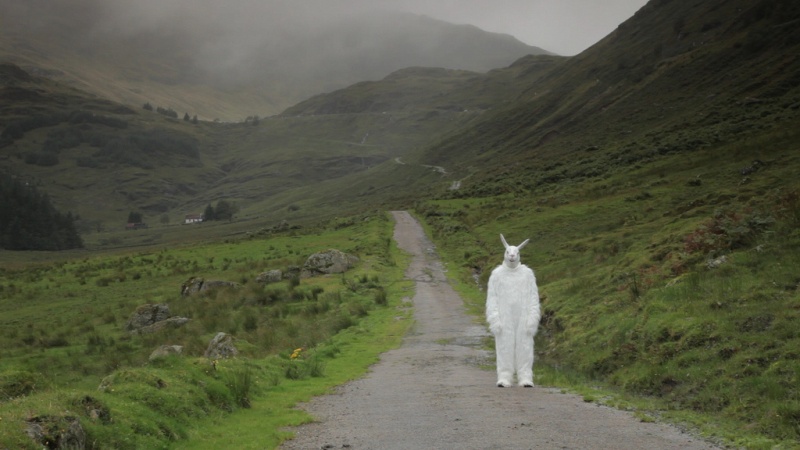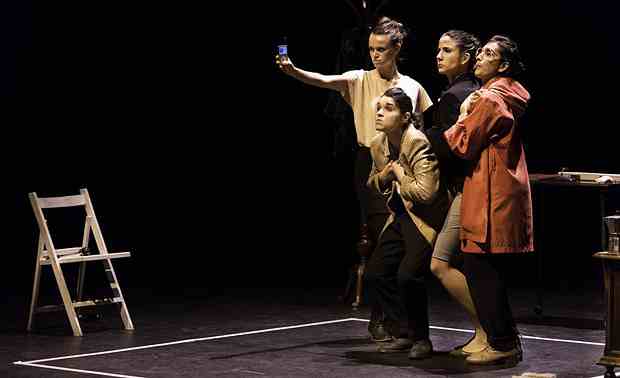The Dissection Room in the wonderful Summerhall has been transformed into a gig-like, mysterious space for Biding Time (Remix). Dry ice wafts around the space, which has a catwalk-like structure jutting out from a stage and continuing into the long space. As we enter we’re handed a pair of headphones and a programme. We excitedly don the Silent Disco headphones and follow the instructions on the programme which advises us on how to behave during the performance. We can roam as we wish, use our phones, take photos, take our headphones on and off as we please… The sense of anticipation is excellently built up by director Ben Harrison (site-specific guru of Grid Iron). Trance dance music echoes through the cavernous space as it bleeds from the headphones dotted around the room.
A white rabbit slinks through the space, a black body back slung over his shoulder. He unzips it to reveal a blonde-haired woman clutching a ukulele and dressed in a pastel blue 1950s-style skirt and cardi, looking not unlike Laura Linney in The Truman Show. She is the image of innocence: bright-eyed, pretty and hopeful. Strumming the ukulele, she begins to sing a soft folky song, her sweet voice ringing beautifully in our headphones. Played by Louise Quinn, this is Thyme: an aspiring singer-songwriter whose journey to stardom we follow over the course of an hour whose music echoes Goldfrapp on their ethereal, chilled-out tracks.
This is a story for the X-Factor generation. Thyme is snapped up by a greedy record company, sexed up to sell shed loads of songs and shown the door. It’s a simple story pieced together through a live music and a complex series of videos by Uisdean Murray which include Thyme’s mum leaving voicemails about real-life back home (always involving some member of the family becoming ill). The white rabbit oversees events, personifying the mysterious pathways our lives can take. Thyme dances with him and rides on his back during her raunchy miming number before he cooks a heart on a Bunsen burner.










